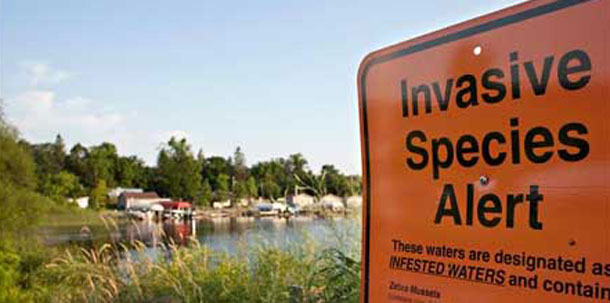
THUNDER BAY – There are many sites throughout Thunder Bay where green spaces and forested areas are currently threatened by invasive species. Invasive plants are non-native species which threaten the natural environment by outcompeting native plant species. In many cases, these invasive species were originally sold as ornamental or edible garden plants. Gardeners may be unwittingly jeopardizing local ecosystems by keeping certain plants in their home landscape.
To combat this growing issue, on Saturday, August 11th, EcoSuperior will host an invasive plant information session at Central Natural Gardens, located on 10th Avenue just off Central Avenue. The drop-in event will run from 11:00 am to 2:00 pm. EcoSuperior and the Ontario Federation of Anglers and Hunters will be on site with plant specimens, displays, information on removing and eradicating invasive species, and advice on non-invasive plant choices.
The information session is provided by Melissa Davidson, Invasive Species Intern with EcoSuperior, and Sarah Friesen, Invasive Species Community Outreach Liaison with the Ontario Federation of Anglers and Hunters. This is a drop-in session for learning about invasive plants threatening the area and what homeowners can do in their own backyards to help prevent the spread of invasive species in Thunder Bay.
“Often, gardeners are unaware that they are growing invasive plants,” says Davidson. “The first step in combatting the spread of invasive plants is proper identification.” Davidson is spearheading the development of a municipal invasive plant strategy for the City of Thunder Bay and is hopeful that events such as this will increase awareness of invasive plants impacting the area.
.
Once a plant has been identified as invasive, removal can prove to be a challenge,” says Friesen. “You need to understand the biology of the species and know how to properly dispose of the plant material after,” Friesen emphasizes that invasive plant material should never be composted as this could cause further spread. Best practice for disposal of invasive plant material is by ‘solarizing’, a process where plant material is placed in black garbage bags and left in full sun for 2-3 weeks to decompose before going to the landfill.
EcoSuperior has an invasive plant removal kit available for loan from their office located at 562 Red River Road.
For more information on this event visit ecosuperior.org/invasivespecies or call 624-2141.
